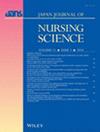Enhancing learning motivation and academic achievement in nursing students through metaverse-based learning: A randomized controlled study
Abstract
Aim
Generation Z students do not get much benefit from traditional distance education methods. Instead, they need new platforms and methods that will motivate them and increase their success.
Methods
A randomized controlled study was performed on 42 students. The experimental group students were presented with metaverse, and the control group students were taught the distance education course.
Results
In this study, in the students' Instructional Materials Motivation Survey, the mean scores of both the experimental and control groups exhibited no significant difference before the intervention. Regarding the effect of metaverse-based learning on students' Instructional Materials Motivation Survey, the mean score of the control group was 82.55 ± 13.18, and the mean score of the experimental group was 96.52 ± 9.54 and there was a significant difference between groups after the intervention. When the academic achievement levels of the groups were examined, it was determined that the experimental group scored 76.57 ± 13.33 and the control group received 64.40 ± 16.42 points. It was determined there was a significant difference between the groups in terms of learning motivation and academic achievement.
Conclusion
The study results show that the participants accepted the important role of metaverse as an effective learning method compared to traditional distance education methods. It is recommended to expand the use of metaverse in various fields of nursing education.

 求助内容:
求助内容: 应助结果提醒方式:
应助结果提醒方式:


